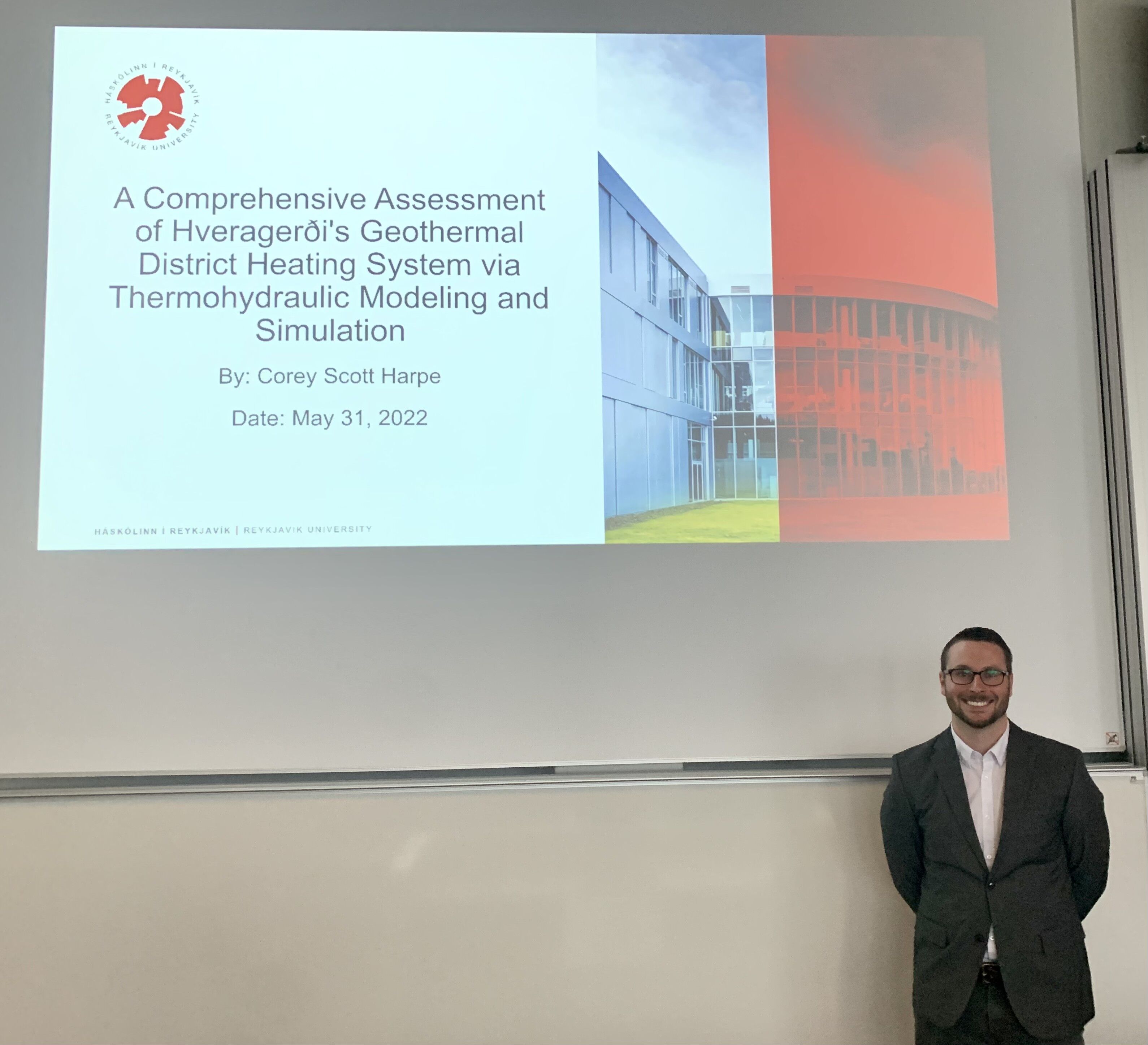MSc Thesis: A Comprehensive Assessment of Hveragerði's Geothermal District Heating System via Thermohydraulic Modeling and Simulation
REYKJAVIK, May 31 - MSc in Sustainable Energy Engineering candidate, Corey Harpe, successfully defended his master's thesis where he investigates a comprehensive assessment of Hveragerði's geothermal district heating system leveraging thermohydraulic modeling and simulation. Corey's work was supervised by Dr. Guðrún Arnbjörg Sævarsdóttir from Reykjavík University; Dr. María Sigríður Guðjónsdóttir from Reykjavík University; and Dr. Egill Maron Þorbergsson, Specialist in Innovation and Technological Development at Veitur. Examination was conducted by Heimir Hjartarson, Mechanical Engineer at EFLA Consulting Engineers.

Corey begins by providing context on Hveragerði, a town in southwest Iceland, which has an immense geothermal resource beneath its feet that has led to a rich history in direct utilization to provide heat and thermal energy to power lives, homes, industries, and greenhouses. He then goes on to highlight that, at its current juncture, Hveragerði's closed-loop district heating system is stretched to capacity regarding the spread of elevations it can supply, piping network flow capacity, and the available pumping power at the primary heat exchange station. Corey states that, in addition, several operational and maintenance issues have arisen from the direct heating utilization of a high-temperature geothermal reservoir and varying jurisdictional ownership and investment.
Corey constructs a comprehensive thermohydraulic computer model in Fluidit Heat to address these issues and to replicate the function and design of Hveragerði's district heating system with a high degree of accuracy. In the modeling and simulation process, Corey built scenarios to model the system's state in January 2022, the future state of the system in January 2030, and to support the optimal design of the district heating system.
Corey concludes with the critical result of this analysis, which is a proposal to build three new auxiliary booster pump stations to create a total of four pressure zones over the current one pressure zone system. Additionally, he goes on to provide optimal control settings and specifications for future equipment, enhanced modifications to the system, and key planning topics for the utility owner, Veitur.
Congratulations Corey on an excellent thesis defense!
